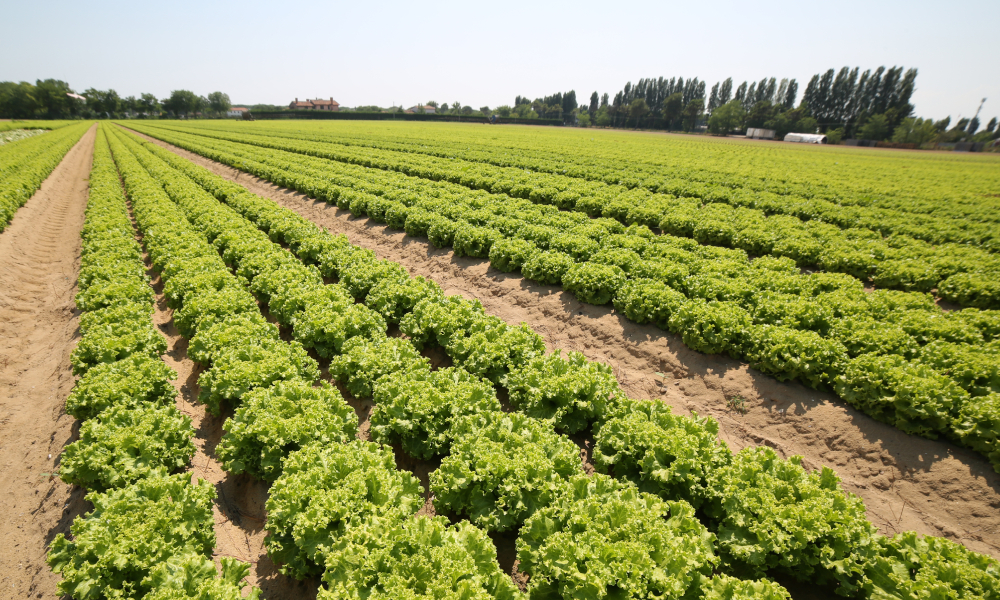
The Agency for Health and Food Security (AHEFS) has called on the government to institute a vegetable value chain policy that is responsive to the needs of the various vegetables grown in the country.
A statement issued by the Agency on the occasion of the National Farmers’ Day celebration praised farmers and all actors in commodity value chains for their contribution to agriculture, food security and improved nutrition in Ghana.
The statement also commended government for the various investment initiatives aimed at improving agriculture in Ghana.
The Agency for Health and Food Security is worried that “despite the economic prospects of the sector, the overall vegetable production in Ghana is still relatively low and expensive in comparison with other sub-Saharan African countries such as Kenya, Mozambique, Uganda, among others. As a result, over US$100 million is spent annually to import tomatoes and onions from the neighboring countries (i.e., Burkina Faso, Togo, and Niger) to meet the ever-increasing domestic demand.”
They stressed that vegetable production is very important for socio-economic development of Ghana due to its significant contribution to job creation, income generation as well as food and nutritional security (SDG 2). “Ghana’s vegetable sector offers great opportunities for growth given the steady increase in demand in the domestic markets and the increasing export opportunities. The domestic vegetable market alone is growing at more than 10% per annum and the potential value for export is estimated at US$250 million.”
“The poor performance of the vegetable industry has been partly attributed to poor agronomic practices, inadequate infrastructure (poor road networks, inadequate storage facilities, etc.), poor financial accessibility and most importantly uncoordinated agricultural development policies and programs. Countries like Thailand, China etc. experienced similar challenges in their vegetable industry in the 1980s. However, with vegetable – specific value chain policies, the aforementioned countries were able to transform from a situation of undersupply in the 1980s to an oversupply in less than a decade” they argued and added that “it became evident from our research that the agricultural policies in Europe (i.e., Common Agricultural Policy) and other emerging/developing economies such as Thailand, China etc. have been designed to target the development of specific crops and animals. On the other hand, the African regional and sub-regional agricultural policies such as the Comprehensive Africa Agriculture Development Programme (CAADP) of NEPAD and the ECOWAS Agriculture Policy (ECOWAP) tend to have themes that are too general without any specific programmes or projects to achieve the set objectives. In the same vein, some of the African countries (e.g. Tanzania, Liberia, Zambia etc.) did not prioritize any particular crop in their agriculture policies. Other countries such Nigeria, Togo etc. have highlighted the development of cereals, legumes, and cash crops in their policy documents. However, the strategies to achieve the said objectives are too general and do not target any specific crop as portrayed.”
They lamented that in Ghana, there seems to be overemphasis on improvement in cocoa and cereal (maize, rice) or legumes (soybean, cowpea) production in agricultural policies but the implementation strategies have largely not been crop-specific, thereby defeating the purpose for labelling the forenamed crops as “priority crops”. “The Planting for food and Jobs program for instance does not tackle the land tenure, financing, processing and marketing and pricing needs of the vegetable sector.”
Recommendations
They went ahead to make recommendations towards developing the vegetable value chain and for that matter, the vegetable industry in Ghana, based on a desk review and focus group discussions.
- Agriculture policies should be designed for specific vegetable value chain with clearly defined implementation strategies that take into consideration the peculiar challenges and food safety concerns associated with all vegetables and their value chains.
- Agricultural value chain actors and project implementing partners should be properly trained and their responsibilities clearly defined to prevent role conflict and ensure proper coordination of various activities along the vegetable commodity value chains.
- Stakeholder consultations prior to agricultural policy designs should include the experts from the Universities, NGOs/CSOs in the agricultural sector and private sector actors such as market aggregators, financial institutions, marketers, input dealers, import and export agents and processors among others.
- There should be specific projects designed to meet the food sufficiency needs of commercial vegetables and indigenous vegetable commodities.
What do you think about this piece? Share your comment in the comment thread and share the story using the social media buttons above. You may reach the editor on 0249579664. Thank you.





